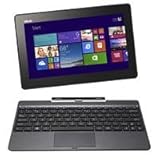I was 16 when a long time ago, I walked into an electronic store where the guy tried his best to persuade me not to look into transistors, because vacuum tubes where much more interesting, transistors being “toys”. A couple years later transistors were everywhere and not long after the shop closed down.
A few decades later, Apple II and IBM-PC were the platforms for corporate and small businesses microcomputing. Mac was largely considered a toy for yuppies, not worthy of any more than a nice decoration on an executive desk. Then Apple discarded the Apple II and Apple III, and a lot of third party suppliers of software and peripheral went south with it.
Then Windows arrived, that was largely despised by tenants of DOS programs like Lotus 1-2-3 as not anything but a cute imitation of the Mac, not worth much more attention from ‘serious’ people. It was slow, it had no applications, it was too demanding in hardware resources, and so on. We all know what happened to Lotus when Excell came about, and what came for PC-Dos.
When the iPhone and the iPad came, a lot of distinguished luminaries explained at length how these toys would never be anything but cute gadgets, not worth any consideration for business use. Still today, quite a few developers look down on iOS and Android as just a platform for small apps and games. Gimme Windows, gimme Mac, they are serious computers. Tablets ? Pfuhh !
Just like transistors versus tubes, miniaturization does sell, in spite of ‘authorized’ commentator’s opinion. I just read this article :
http://winsupersite.com/mobile-devices/state-personal-computing-market-q2-2014
In it, it appears 48 per cent of all devices, tablets, desktop, laptop and smart phones are running Android. PC sales should average 308 million units, while tablets will represent 256 million. Next year, 321 million tablets, compared to 317 million PCs. Tablets continue to grow. In the tablet market, about 30% are iOS. In the PC market, Mac is less than 7%. Effectively, the trend is diluting both Windows and Mac in half of the total computing devices, so Mac is sliding down to some 3.5% and Windows under 40% (was more than 90% last decade).
How will desktop app developers cope with these new figures ? Do like the vacuum tube shopkeeper of the sixties, or move ahead into the new systems ?

Yet another source of concern for desktop developers. You must have seen the like of combo laptops as the Asus Transformer Book above. Intrinsically a tablet with a keyboard. All sorts of hybrids like this exist, from tabletish laptops, to laptopish tablets. From the Microsoft Surface to 15" tablets that come with a big keyboard and a drive. How long will it take for these devices, all touch capable like most of laptop and an increasing number of all-in-one desktop, to switch to an OS conceived for touch ? How long until the successor of the MacBook Air becomes that kind of thing, running iOS ? How long for transformers to massively run Android, instead of Windows-the-unable-to-chose, neither good at desktop nor touch like demonstrated so dismally by Windows 8 ?
My son, who is no young chick at 39+, is using his iPhone for most everything, switches to his Surface sometimes when he needs a bigger screen or a keyboard to type a long letter, and once in a great while, boots up his Vaio to use iTunes. I suspect he would dump it if he could run iTunes on the tablet. If that is any indication of consumer behavior, we may be in the process of the most massive OS animal extinction since the disappearance of Apple II, PC-Dos and Dos 6… What are we to do when our ecological niche is so much at risk ?
iOS Xojo may seem futile to some. I believe that is the only salvation both Xojo Inc. and us users can count on to survive the coming debacle. And for Android, B4A, pending an hypothetical Xojo product…
